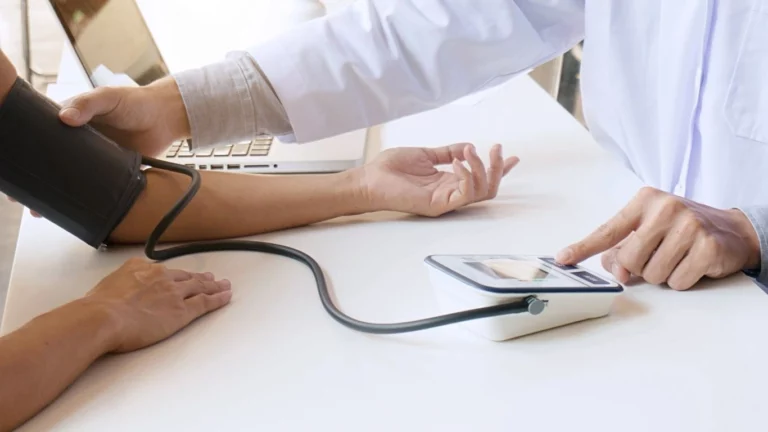Rheumatoid Arthritis and Your Cardiovascular Health: Understanding the Connection
Are you living with rheumatoid arthritis (RA) and wondering how it might be affecting your heart? You’re not alone. RA isn’t just a condition that impacts your joints—its effects can go much deeper, influencing your overall health, including your cardiovascular system. In this article, we’ll break down how RA can impact heart health and why it’s important to keep a close eye on both.
What is Rheumatoid Arthritis?
Rheumatoid arthritis is an autoimmune disease where your body’s immune system mistakenly attacks the synovium—the lining of your joints. This causes inflammation, pain, and swelling. It’s a chronic condition that can get progressively worse over time, and while it primarily affects the joints, it has the potential to lead to complications in other areas of the body, including the cardiovascular system.
How Rheumatoid Arthritis Affects the Heart
Living with RA puts you at a higher risk for heart disease, including heart attacks, stroke, and other cardiovascular issues. It’s because the inflammation associated with RA doesn’t just stay in your joints—it can spread throughout your body, including the blood vessels and the heart.
Inflammation and Cardiovascular Disease
One of the biggest risks to your heart from RA is inflammation. Chronic inflammation from RA can damage the blood vessels, increasing the likelihood of plaque buildup (atherosclerosis) in the arteries. This leads to narrowed arteries, which can contribute to higher blood pressure and, ultimately, an increased risk of heart disease. Essentially, your immune system’s attack on your joints might also be quietly attacking your cardiovascular system.
Increased Risk of Heart Disease
Studies have shown that people with RA are more likely to develop heart disease than those without the condition. In fact, RA patients are at a significantly higher risk of having heart attacks and strokes. Inflammation can contribute to the thickening of the heart’s walls, which can reduce its ability to pump blood effectively, putting additional strain on your heart. It can also affect the heart’s electrical system, leading to arrhythmias or abnormal heart rhythms.

The Link Between RA, Lifestyle, and Cardiovascular Health
Apart from the inflammation, there are a few lifestyle factors that people with RA may face that can further complicate heart health. For example:
Physical Inactivity
Because RA can make movement painful and difficult, people with the condition might lead a more sedentary lifestyle. Lack of physical activity is a significant risk factor for heart disease. Regular exercise helps to keep your heart healthy by improving circulation, lowering blood pressure, and maintaining a healthy weight. However, joint pain can make it tough to get moving. Working with a physical therapist or your doctor to find gentle, joint-friendly exercises can help keep your heart in good shape.
Medications and Side Effects
The medications used to treat RA, such as nonsteroidal anti-inflammatory drugs (NSAIDs) and corticosteroids, can have side effects that impact heart health. Long-term use of these medications can contribute to high blood pressure, fluid retention, and increased risk of stroke or heart failure. That doesn’t mean you should stop taking your medications—just make sure you have regular checkups with your doctor to monitor your heart health while managing RA.

Signs of Cardiovascular Issues in RA Patients
If you’re living with RA, it’s important to be aware of the signs that your heart might be affected. While the symptoms of heart disease can vary, here are a few to keep an eye on:
- Chest pain or discomfort: This is the most common sign of heart problems. If you feel pressure, tightness, or discomfort in your chest, it’s important to get checked out.
- Shortness of breath: If you’re feeling winded even after light activity or while at rest, it could indicate heart problems.
- Fatigue: RA already causes fatigue, but if you’re feeling more exhausted than usual or have trouble doing your regular activities, it’s worth investigating.
- Swelling in the legs or ankles: Fluid retention can be a sign of heart failure, especially if it’s more pronounced in the lower extremities.
- Irregular heartbeats: A sensation of a racing heart or palpitations might indicate arrhythmia, which can be linked to both RA and cardiovascular disease.

Protecting Your Heart: Tips for Managing Both RA and Cardiovascular Health
While RA puts you at a higher risk for heart disease, there are plenty of things you can do to protect your heart. Here are some practical tips to help keep both your joints and your heart in good shape:
1. Manage RA Effectively
Keeping your RA under control is key to reducing your risk of cardiovascular issues. Effective management of inflammation through medication, physical therapy, and lifestyle changes can lower the strain on your heart. Regular checkups with your rheumatologist are essential for staying on top of your condition.
2. Adopt a Heart-Healthy Diet
A balanced diet plays a critical role in heart health. Eating plenty of fruits, vegetables, whole grains, lean proteins, and healthy fats (like those found in olive oil and fish) can help lower inflammation and improve heart health. Omega-3 fatty acids, found in fatty fish like salmon, can help reduce inflammation and protect the heart. Avoiding excessive salt, processed foods, and unhealthy fats is also important for managing blood pressure and cholesterol levels.
3. Stay Active
While joint pain can make exercise difficult, it’s important to stay as active as possible. Talk to your doctor about low-impact exercises that are kind to your joints, like swimming, walking, or biking. Even if you can’t do high-intensity workouts, regular physical activity will help keep your cardiovascular system healthy and improve your overall quality of life.
4. Monitor Your Blood Pressure and Cholesterol
People with RA should have their blood pressure and cholesterol levels checked regularly. These are key indicators of heart health and can help your doctor detect any early signs of cardiovascular issues. If your numbers are too high, your doctor can help you take steps to lower them.
5. Quit Smoking and Limit Alcohol
If you smoke, quitting is one of the best things you can do for both your joints and your heart. Smoking increases inflammation in the body and contributes to heart disease. Excessive alcohol intake can also raise blood pressure and negatively impact heart health, so it’s best to limit consumption.
Conclusion: Managing RA and Protecting Your Heart
Living with rheumatoid arthritis can be tough, and managing the inflammation is key to protecting your joints—and your heart. By staying on top of your RA treatment, adopting a heart-healthy lifestyle, and monitoring your cardiovascular health, you can significantly reduce your risk of heart disease and improve your overall well-being. Regular checkups with your healthcare providers will help keep both your joints and heart in good shape.

Appendices
References
- American Heart Association (2023). “Rheumatoid Arthritis and Heart Disease.” AHA.
- Singh, J., et al. (2022). “Rheumatoid Arthritis and Cardiovascular Disease Risk.” Journal of Rheumatology, 48(3), 215-222.
- National Institutes of Health (2024). “RA and Cardiovascular Health.” NIH.
FAQs
- How does rheumatoid arthritis affect the heart? RA causes inflammation throughout the body, including the heart and blood vessels. This increases the risk of heart disease, stroke, and other cardiovascular issues.
- Can I prevent heart disease if I have RA? While you can’t eliminate the risk completely, you can significantly lower it by managing RA effectively, staying active, eating a heart-healthy diet, and monitoring your blood pressure and cholesterol.
- What are the signs of heart problems in someone with RA? Look out for chest pain, shortness of breath, fatigue, swelling in the legs or ankles, and irregular heartbeats.
- Do medications for RA affect heart health? Some medications, like corticosteroids and NSAIDs, can increase the risk of heart disease. It’s important to have regular checkups to monitor any potential side effects.
- How can I improve both my RA and heart health at the same time? Focus on a balanced diet, regular exercise, controlling inflammation, and avoiding smoking or excessive alcohol. Work with your doctors to develop a comprehensive health plan.
Disclaimer
The information provided in this article is for educational purposes only and does not substitute for professional medical advice. Always consult your doctor or healthcare provider regarding any concerns related to rheumatoid arthritis or cardiovascular health.

Tarra Nugroho is a dedicated Nurse Practitioner with a strong foundation in family and preventive care. She brings both compassion and clinical expertise to her practice, focusing on patient-centered care and health education. As a contributor to Healthusias.com, Tarra translates medical knowledge into clear, empowering articles on topics like women’s health, chronic disease management, and lifestyle medicine. Her mission is simple: help people feel seen, heard, and informed—both in the clinic and through the content she creates. When she’s not caring for patients, Tarra enjoys weekend hikes, plant-based cooking, and curling up with a good health podcast.







